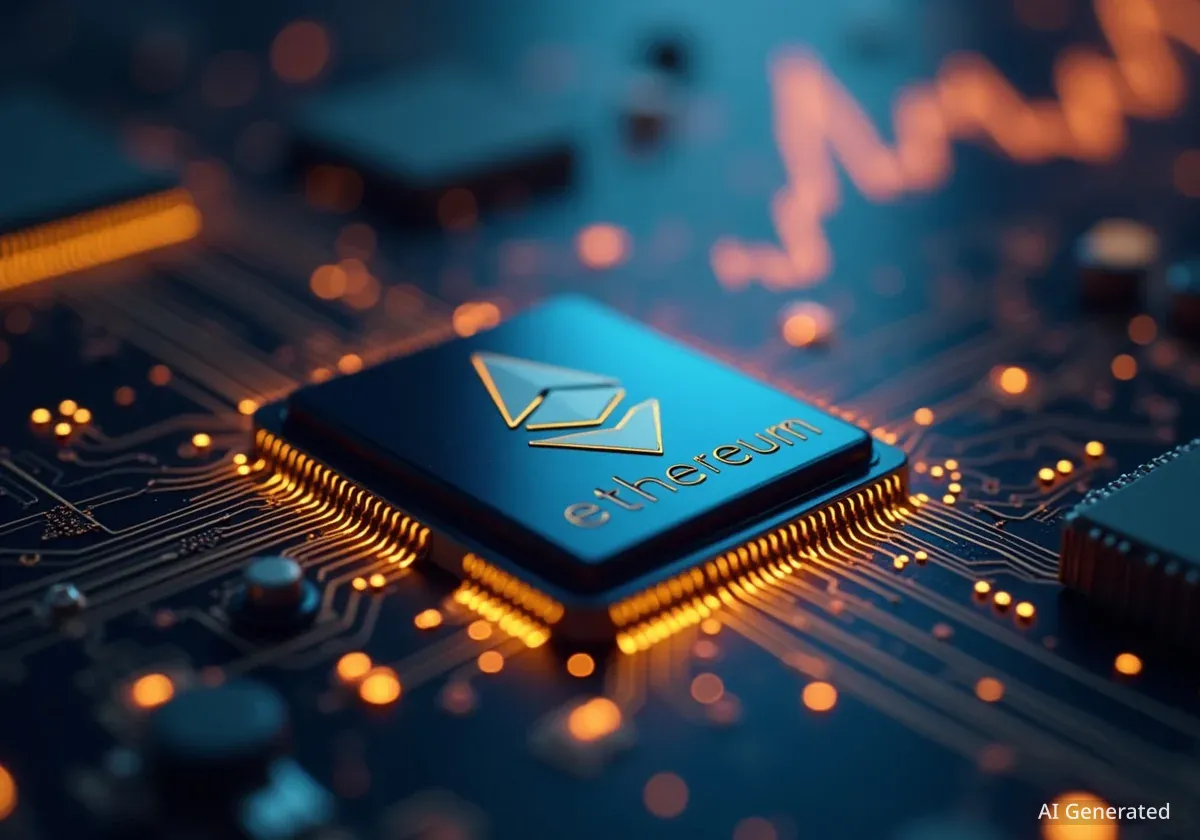SharpLink Gaming, a publicly traded company and one of the largest corporate holders of Ether, has announced its intention to tokenize its common stock on the Ethereum blockchain. The company has notified the U.S. Securities and Exchange Commission (SEC) of its plans, which involve a partnership with financial technology firm Superstate to use its Open Bell tokenization platform.
Key Takeaways
- SharpLink Gaming plans to issue a tokenized version of its Nasdaq-listed stock (SBET) on the Ethereum network.
- The company is partnering with Superstate and will use its Open Bell platform for the tokenization process.
- SharpLink is the second-largest publicly traded company by Ether holdings, having established a corporate ETH treasury in May 2024.
- The long-term goal is to enable compliant trading of these tokenized shares on decentralized finance (DeFi) platforms, including automated market makers (AMMs).
A Strategic Move into On-Chain Equities
SharpLink Gaming is taking a significant step to bridge traditional financial markets with blockchain technology. The company, which trades under the ticker SBET on the Nasdaq, will represent its common stock as digital tokens on Ethereum. This process will be facilitated by Superstate, a firm specializing in the tokenization of real-world assets.
Joseph Chalom, co-CEO of SharpLink, described the initiative as a forward-looking move for the capital markets. "Tokenizing SharpLink’s equity directly on Ethereum is far more than a technological achievement — it is a statement about where we believe the future of the global capital markets is headed," Chalom stated.
This initiative places SharpLink among a growing number of companies exploring on-chain equities. For example, Forward Industries recently announced a similar plan to tokenize its shares on the Solana blockchain, also using the Open Bell platform. This indicates a broader trend of public companies seeking the efficiency and transparency offered by blockchain technology.
What is Stock Tokenization?
Stock tokenization is the process of creating a digital representation of a company's shares on a blockchain. Each token corresponds to a share of the company's stock, with ownership recorded on an immutable digital ledger. This can potentially offer benefits such as 24/7 trading, fractional ownership, and increased liquidity by opening access to a global pool of investors.
SharpLink's Pivot to Digital Assets
Founded in 2019, SharpLink operates as a performance-based marketing company focused on the online gaming and sports betting industries. However, the company made a strategic pivot in May 2024 by deciding to create a corporate treasury reserve using Ether (ETH), the native cryptocurrency of the Ethereum network.
This decision quickly established SharpLink as a major player in the corporate crypto space. According to data from CoinGecko, SharpLink is now the second-largest public company in the world based on its Ether holdings. The move had an immediate and dramatic effect on its stock price.
Stock Volatility Follows Crypto Announcement
Following the announcement of its ETH treasury strategy, SharpLink's stock experienced extreme volatility. The share price surged more than 100% in just a few days, climbing from approximately $40 on May 27 to nearly $90 by May 30.
The rally was short-lived. According to data from TradingView, the stock price quickly retreated, falling to around $10 by the middle of June. Since then, the stock has not managed to trade above the $40 mark, highlighting the market's initial speculative reaction and subsequent correction.
SBET Stock Performance Snapshot
- Pre-Announcement (May 27): ~$40 per share
- Peak Price (May 30): ~$90 per share
- Mid-June Low: ~$10 per share
Envisioning a Decentralized Trading Future
In its filing with the SEC, SharpLink outlined a long-term vision that extends beyond simple tokenization. The company plans to collaborate with Superstate to explore how these tokenized shares could eventually be traded on decentralized finance (DeFi) protocols in a fully compliant manner.
A key focus of this effort is enabling trading on automated market makers (AMMs). AMMs are a type of decentralized exchange (DEX) that allows for the automatic trading of digital assets using smart contracts and liquidity pools, rather than relying on traditional order books with buyers and sellers.
"This initiative aligns with the SEC’s broader Project Crypto innovation agenda aimed at modernizing US securities regulation to better enable digital assets, blockchain and on-chain markets," SharpLink noted in its statement.
The goal is to create a regulatory-compliant framework that allows tokenized public equities to benefit from the efficiency and accessibility of DeFi infrastructure. This could pave the way for a new model of securities trading that operates continuously and is accessible to a wider range of participants globally.
Alignment with Regulatory Modernization
SharpLink's move is timed to coincide with a broader push by regulators to understand and adapt to financial innovation driven by blockchain. The company explicitly referenced the SEC's "Project Crypto," an agenda focused on updating securities regulations for the digital age.
By working within the existing regulatory framework while exploring new technologies, SharpLink and Superstate aim to demonstrate a compliant pathway for public companies to leverage blockchain. Their efforts could provide a valuable case study for how traditional securities can be integrated into on-chain markets, potentially setting a precedent for other publicly traded firms.
The success of this initiative will depend on navigating complex legal and technical challenges. However, it represents a clear signal that the convergence of traditional finance and blockchain technology is gaining momentum, with established companies now actively participating in building this new financial infrastructure.





